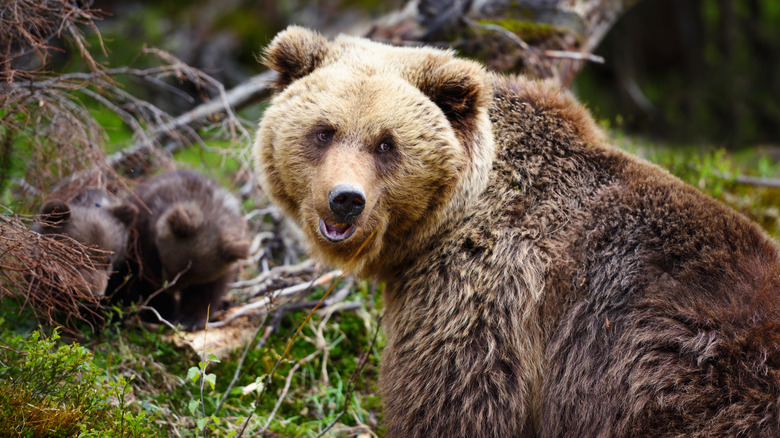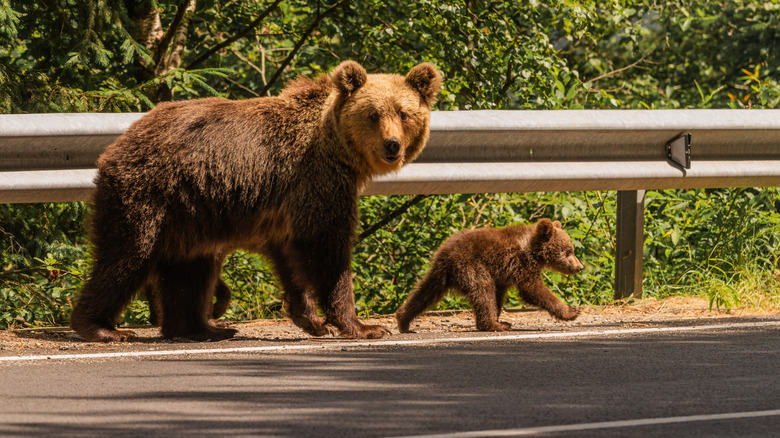Is A Mother Bear More Likely To Attack You If Her Cubs Are Nearby?
Bears, which often symbolize strength and courage in Native American culture, are undeniably beautiful animals. However, they are also extremely powerful. With bear attacks on the rise in recent years, it is important to know what to do and how to stay safe whenever you are adventuring in bear country — for your protection and theirs. While you probably already know what bear spray is and how to use it, it is also important to know what might trigger a bear attack and how to avoid it. Unfortunately, when it comes to animal attacks, there is a lot of misinformation out there that can make you start questioning even your oldest held beliefs — like whether or not it is actually true that a mother bear is more likely to attack you if her cubs are nearby.
To find out more about this, we spoke to Sarah Elmeligi, conservation biologist and author of the book "What Bears Teach Us." According to Elmeligi, "Females with cubs are more likely to engage in a defensive attack than a bear on its own. These attacks are, however, extremely rare. Millions of people recreate in bear habitat every year and nothing happens. The key is to try not to surprise a bear." The best thing you can do is remain calm. As Elmeligi tells us, "If you see cubs without a female, do a quick scan to see if you can locate her. Then, back away from her and the cubs. Do not run from a bear, ever."
How to avoid crossing paths with a mamma bear and her cubs
You should never approach a mother bear and her cubs (or any wild bear for that matter). "Females with cubs may be quicker to engage in a defensive attack if they feel their cubs are threatened," notes Elmeligi. Because of this, it is a good idea to try and avoid crossing paths with a mamma bear and her babies altogether. As Elmeligi explains, "The main thing when recreating in bear habitat is for you to be on alert — don't hike with earbuds, keep your dog on a leash, pay attention to your surroundings. Ideally, you would see a bear before it sees you and you can leave without making much of a fuss." Furthermore, while in bear country, she recommends alerting any bears in the area that you're approaching. This will give them ample time to head elsewhere. "Make noise by singing, talking with friends, or calling out 'Yo Bear' every once [in] a while," advises Elmeligi.
Another thing to remember is that it is possible to run into a momma bear and her babies not only in spring but also in summer and fall. This is because bear cubs are typically born in winter and often stay with their moms until the following spring. Interestingly, there is more bear habitat in the U.S. than most people realize and you can even find black bears in Florida. Because of this, it is important to research a destination before visiting so you know what to expect as far as wildlife and bear activity. To find out more about these majestic animals, check out Sarah Elmeligi's website where she discusses conservation challenges and solutions.

